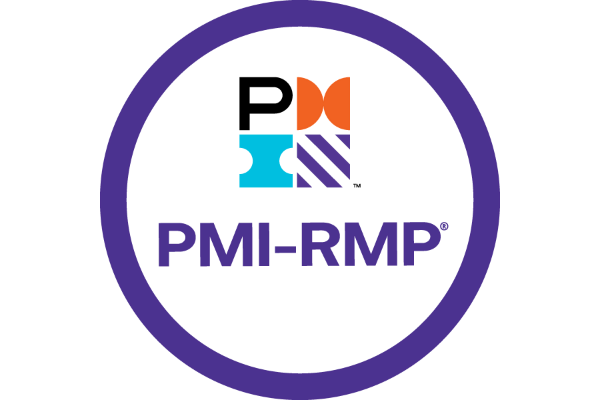Course Curriculum
Course Content
- Understanding risk management principles
- Overview of the PMI-RMP certification
- Benefits of PMI-RMP certification
- PMIs approach to risk management
- Key processes in risk management
- Project risk and project management interrelation
- Developing a risk management plan
- Roles and responsibilities in risk management
- Integration of risk management into project management processes
- Techniques for identifying project risks
- Documentation of identified risks
- Risk register and risk breakdown structure
- Assessing risks based on probability and impact
- Probability and impact matrices
- Prioritizing risks for further analysis
- Applying numerical methods to assess risks
- Monte Carlo simulation
- Sensitivity analysis and tornado diagrams
- Review of key concepts and terms
- Sample questions and practice exams
- Test-taking strategies and time management
- Analyzing real project scenarios related to risk management
- Applying risk management concepts in practical situations
Quick Enquiry
Exam & Certification
To be eligible for the PMI-RMP exam, you need to meet specific education and experience requirements. For example, you might need a secondary degree (high school diploma, associates degree, or global equivalent) with a minimum of 4,500 hours of project risk management experience and 40 hours of project risk management education. Alternatively, you could have a four-year degree with 3,000 hours of project risk management experience and 30 hours of project risk management education.
Testimonials
PMI-RMP FAQ's
PMI-RMP training is a structured learning program designed to prepare individuals for the PMI-RMP certification exam. It covers topics related to project risk management and provides participants with the knowledge and skills needed to effectively identify, assess, and manage risks in projects.
PMI-RMP training is suitable for professionals who have a role in project risk management or those who want to specialize in this area. This includes project managers, risk managers, project coordinators, and other individuals involved in managing project uncertainties.
PMI-RMP training typically covers a range of topics related to project risk management, including risk planning, identification, analysis, response planning, monitoring and control, communication, stakeholder engagement, and ethical considerations.
The duration of PMI-RMP training can vary based on the training provider and the format of the training. It could be a multi-day intensive workshop, a series of online modules, or a self-paced course. Training duration might range from a few days to several weeks.
Yes, many training providers offer self-paced PMI-RMP courses. These courses allow you to learn at your own pace and are often delivered through online platforms with pre-recorded video lessons, quizzes, and practice exams.
PMI-RMP training courses typically provide a certificate of completion. However, this is separate from the PMI-RMP certification itself, which requires passing the official PMI-RMP certification exam.

.webp)
.webp)


